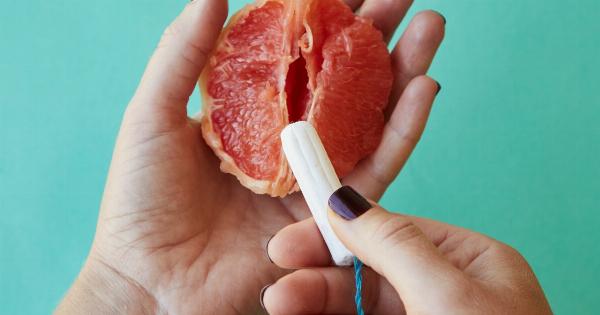Vaginal dryness is a common issue that affects many women at some point in their lives. It is characterized by a lack of lubrication in the vaginal area, often leading to discomfort and pain during sexual intercourse.
While it is more prevalent in menopausal women, it can occur at any age due to various factors. In this article, we will explore the causes of vaginal dryness and discuss potential solutions to alleviate this condition.
Causes of Vaginal Dryness
1. Hormonal changes: One of the most common causes of vaginal dryness is a decline in estrogen levels.
Estrogen plays a crucial role in maintaining vaginal lubrication, and fluctuations in hormone levels, particularly during menopause, can disrupt this balance.
2. Medications: Certain medications, such as antihistamines, antidepressants, and hormonal birth control, can contribute to vaginal dryness as a side effect.
If you suspect your medication is causing this issue, consult with your healthcare provider to explore alternative options.
3. Stress and anxiety: Psychological factors, including stress, anxiety, and depression, can impact your body’s natural lubrication process. Increased tension and stress levels can interfere with sexual arousal, leading to vaginal dryness.
4. Breastfeeding: The hormonal changes during breastfeeding can cause decreased vaginal lubrication. This is usually temporary, and the issue typically resolves itself after breastfeeding has ceased.
5. Certain medical conditions: Certain medical conditions like Sjogren’s syndrome, endometriosis, and vaginal infections can lead to decreased lubrication. These conditions affect the vaginal tissues directly or interfere with hormonal balance.
How to Help with Vaginal Dryness
1. Use lubricants: Using water-based lubricants during sexual activity can significantly alleviate discomfort caused by vaginal dryness. Choose lubricants that are free from added irritants or fragrances.
2. Moisturize regularly: Applying a vaginal moisturizer regularly can help keep the vaginal tissues hydrated and reduce dryness. Look for moisturizers specifically designed for vaginal use and follow the product’s instructions.
3. Maintain optimal hygiene: Avoid using harsh soaps, douches, or scented feminine hygiene products as they can disrupt the natural balance of bacteria and irritate the vaginal tissues. Opt for mild, unscented products instead.
4. Stay hydrated: Drinking an adequate amount of water throughout the day can have a positive impact on your vaginal health as well. Proper hydration helps maintain the overall moisture balance in your body.
5. Manage stress levels: Engaging in stress-reducing activities like yoga, meditation, or deep breathing exercises can improve your body’s response to arousal. Reducing stress can help alleviate vaginal dryness caused by psychological factors.
6. Discuss hormone therapy: If vaginal dryness is significantly impacting your quality of life, hormone therapy may be an option. Hormone replacement therapy (HRT) can help balance hormone levels and restore vaginal lubrication.
However, it is essential to discuss the potential risks and benefits of HRT with your healthcare provider.
7. Seek medical advice: If vaginal dryness persists or causes significant discomfort, it is important to consult with a healthcare professional.
They can evaluate your symptoms, rule out any underlying medical conditions, and provide appropriate treatment options.
Conclusion
Vaginal dryness can be an uncomfortable and distressing condition for women. While it is often a natural part of the aging process, it can affect women of all ages.
Understanding the causes of vaginal dryness and implementing appropriate strategies, such as using lubricants, moisturizing regularly, and managing stress levels, can help alleviate the symptoms and enhance overall vaginal health. Remember, seeking medical advice is crucial for persistent or severe cases of vaginal dryness.



























